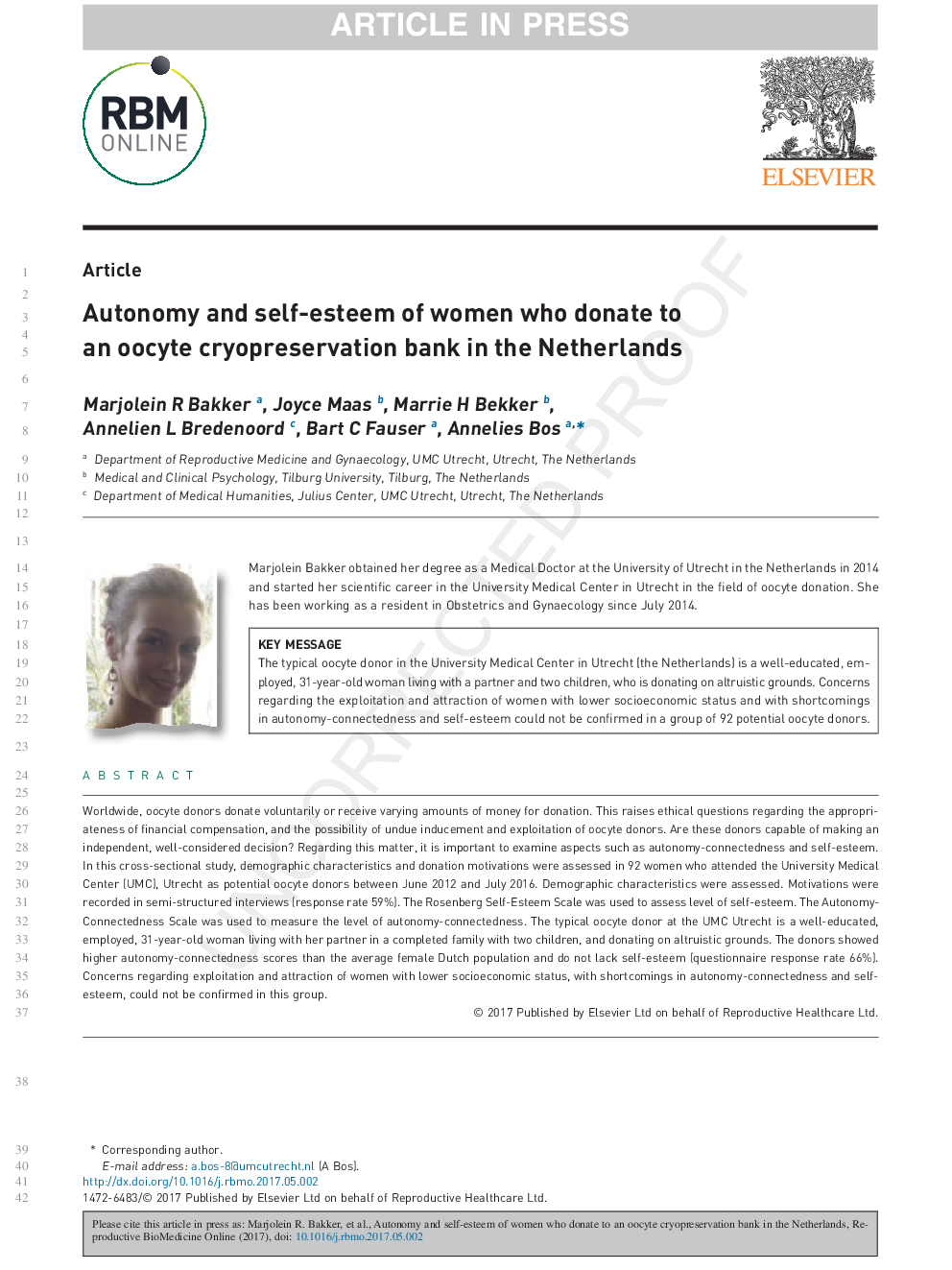ترجمه فارسی عنوان مقاله
خودمختاری و اعتماد به نفس زنان که به یک بانک فریزر تخمک در هلند اهدا می کنند
عنوان انگلیسی
Autonomy and self-esteem of women who donate to an oocyte cryopreservation bank in the Netherlands
| کد مقاله | سال انتشار | تعداد صفحات مقاله انگلیسی |
|---|---|---|
| 114464 | 2017 | 7 صفحه PDF |
منبع

Publisher : Elsevier - Science Direct (الزویر - ساینس دایرکت)
Journal : Reproductive BioMedicine Online, Volume 35, Issue 2, August 2017, Pages 225-231
ترجمه کلمات کلیدی
خودمختاری، مشخصه هایه جمعیتی، اهدا کنندگان انگیزه ها، اهدای تخمک، اعتماد به نفس،
کلمات کلیدی انگلیسی
autonomy; demographic characteristics; donors; motivations; oocyte donation; self-esteem;

